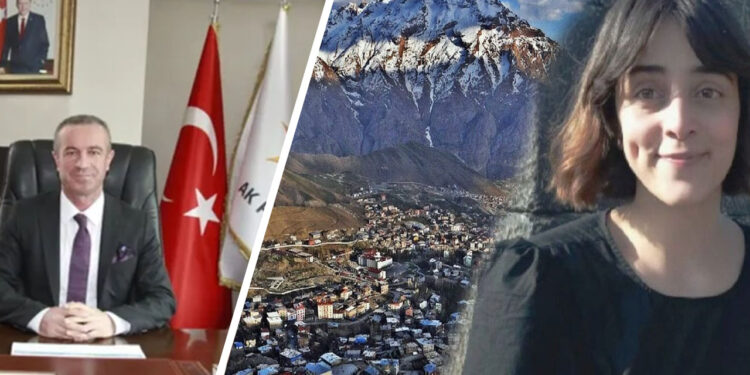“I cannot cast doubt on anybody, or say so-and-so interfered, but could there be such a coincidence?” journalist Timur Soykan asked, incredulous, as he spoke of a provincial chair for Turkey’s ruling AKP who served as the defence lawyer for three cousins accused of raping an 11-year-old girl.

Turkey’s ruling Justice and Development Party’s (AKP) provincial chairman for the southeastern Hakkari (Colemêrg) province served as the defence lawyer in a controversial child abuse case from 2016 where suspects spent only eight months behind bars despite overwhelming evidence against them, journalist Timur Soykan said during a live broadcast on Tuesday.
“Suspects were released after eight months despite such an indictment, and their lawyer happened to be the AKP provincial chair. This creates suspicion,” Soykan said.
According to the journalist, Zeydin Kaya served as the defence lawyer in the case, and later handed it over to his daughter Ümran Kaya.
On Wednesday, Zeydin Kaya issued a statement via his lawyer, who called the televised discussion “a media perception operation by terrorists and their supporters”.
Lawyer Ömer Faruk Aşkan said Kaya had taken the case in 2022, six years after the incident, as the case had continued, and was not the AKP chairman when he did. “He became the provincial chairman 1.5 years after he took the case, and afterwards he withdrew from it,” Aşkan added.
“My client wants the true perpetrators to come to light more than anyone. He has said so insistently in every hearing he attended,” the lawyer said.
The case Soykan brought up involved Esra Yücel, who was 11 years old at the time. The young Kurdish girl testified that she had been lured outside one night by three men from her village, cousins Veysi, Zahir and Nihat Yılmaz, who beat the girl up and raped her in a secluded spot.
The girl was pushed off a cliff and abandoned, and was discovered the next day by other villagers. She testified on the attack at the hospital she was taken to, and a month later she recovered enough to give the local prosecutor the names of the perpetrators.
The three cousins were arrested for sexual abuse of a minor and kidnapping. Hospital staff testified in the girl’s favour, and the forensic examination revealed evidence of rape. The Yılmaz cousins’ phones had also pinged from a cell tower consistent with her testimony on the night of the attack.
However, the court ruled for the Yılmaz cousins’ release eight months later over lack of convincing evidence, citing an expert report that said the examination had detected presence of sperm cells, but the “male DNA was overwhelmed by the female DNA and the male DNA profile could not be extracted”.
Days after the release, in February 2017, Esra Yücel committed suicide.
“There was no obstacles to a ruling for the continuation of arrest, but all other evidence was ignored and the scientific data interpreted in a subjective manner, despite the report not including any wording in favour of the suspects,” Hakkari Centre for Children’s Rights Chairwoman Nükeyf Onursal told reporters in July, ahead of a hearing of the case that has continued for seven years.
“Under such grave circumstances where the best interest of the child should have been sought, the Şemdinli criminal court issued this incredulous ruling that paved the way to a girl’s suicide,” she added.








Leave A Comment